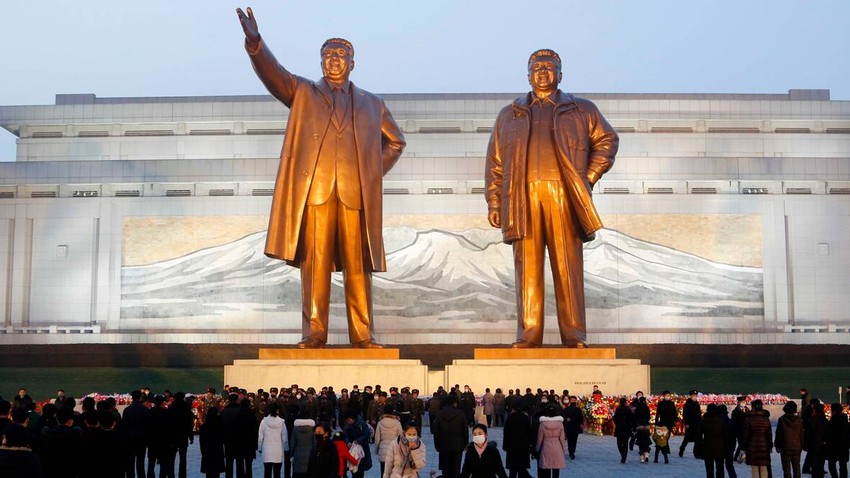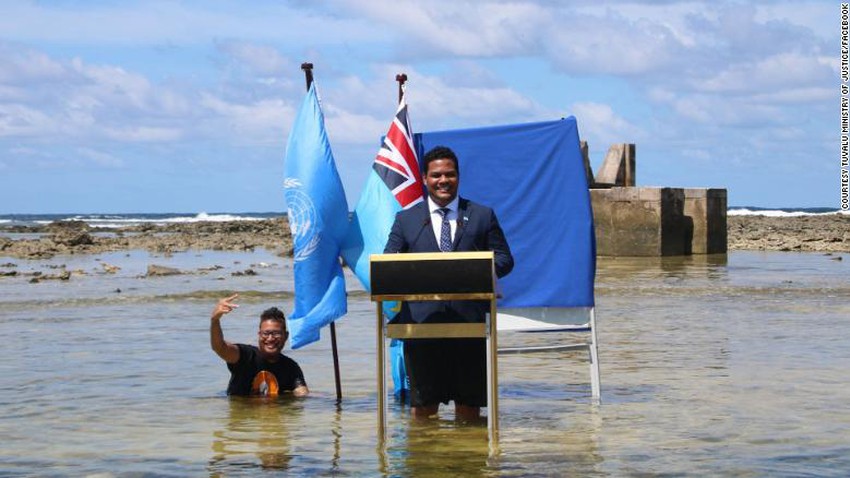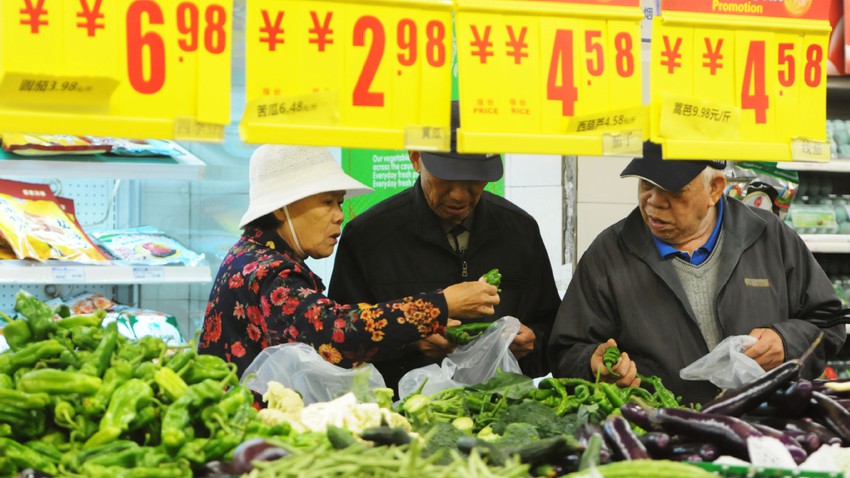The strangest thing that countries did in 2021
Weather of Arabia - It may be acceptable to take strange decisions at the level of individuals because in the end it has a limited impact, but when strange decisions are at the state level, it is reprehensible because it affects an entire people, and below we review the strangest decisions and actions taken by countries during the year 2021.
1. Turkmenistan places the oath on the Noble Qur’an as a condition for access to the Internet

The Central Asian state of "Turkmenistan" tried to tighten its grip on its citizens' use of the Internet, imposed a number of strict restrictions on the use of private home Internet networks, and came up with an effective way to force citizens not to use virtual private networks "VPN" to avoid visiting prohibited sites. .
Many Internet users across the country indicated that the government forces everyone who requests Internet service at home, to put his hand on the Holy Qur’an, and swear when registering his request, not to use the VPN application that allows access to prohibited sites during registration to access the Internet on level of their homes.
The strange move of the oath to the Quran in Turkmenistan comes after many years of isolation and the blocking of many sites including Facebook, YouTube and Twitter. Internet access in Turkmenistan is also slow and subject to censorship, with Turkmenistan ranked last in a global index of the speed of Internet connections, with many online resources being arbitrarily banned in the country.
At the same time, authorities intensified their efforts to prevent residents from using censorship circumvention tools (VPNs) to access blocked resources, such as independent news sites covering Turkmenistan and critical government groups on social media platforms.
2. Slovakia decides to set a financial reward for recipients of the Corona vaccine

The Parliament of Slovakia, a member of the European Union, has approved a plan drafted by Finance Minister Igor Matovic that aims to give citizens aged 60 and over up to 300 euros, equivalent to $339, when they receive the COVID-19 vaccine.
The plan approved by Parliament aims to boost the vaccination rate in Slovakia, and the trend will also support the faltering health care system amid a record wave of new infections.
During the vote, about 97 deputies approved the plan to only 13 who did not, and the deputies acknowledged that those who receive at least one initial dose of the vaccine by January 15 of next year will receive 200 euros, which is equivalent to about 226 dollars in cash. Those who receive a booster dose by January 15 will also receive 300 euros.
It is reported that so far, only 46.5% of Slovakia's population of 5.5 million has been vaccinated. On the other hand, Slovakia is facing a record rise in the number of novel coronavirus cases, which makes it one of the hardest-hit regions in the world.
3. North Korea issues an 11-day ban on laughter

North Korea issued a decree banning its citizens from laughing or engaging in recreational activities during the month of December, as part of the 11-day mourning marking the 10th anniversary of former leader Kim Jong Il, father of current President Kim Jong Un, who ruled the country from 1994 until his death in 2011. .
Each year, the authority imposes mourning days for the two late leaders, a week for the founding leader and 10 days for the father of the current leader, and this year, the mourning seems to be a little longer because it marks the tenth anniversary of Kim Jong Il's departure.
The state of mourning also includes a set of measures, namely not shopping or buying groceries, and preventing loud crying even in the event of the death of a member of a citizen’s family, and it is not allowed to exhume the body until after the mourning has ended.
4. A decision in North Korea to prevent people from wearing a certain coat

In North Korea, the government banned citizens from wearing leather coats, leaving it to be worn by leader Kim Jong Un. According to reports, Kim had worn a leather coat and appeared in it publicly for the first time about two years ago, as Kim Jong Un first appeared in a leather coat in December 2019. Kim's sister, Yoo Jung, and some prominent women were also seen in the leather coat.
The coat then became popular among the North Korean elite, who were keen to imitate the "leader's fashion" only in order to show their loyalty to him.
Which made the Korean authorities intervene and ban the wearing of these coats, and the authorities justified their intervention and banning the wearing of these coats, saying, according to police statements, that wearing imitation and non-original clothes is considered a bad fashion to compete with the supreme power.
The police added that they had instructed citizens not to wear leather coats, and had given the ruling party the sole authority to determine who could wear leather coats.
5. Taliban opens "Buddha statues site" to visit for $5

This decision is considered strange for the Taliban movement, which currently controls the government in Afghanistan, as the movement was known for its militancy and for destroying the statues. Tourists are allowed to walk around and take pictures for $5.
Reports attributed this to the fact that the movement seeks to present a more moderate image of itself after seizing power.
The area, which opened as a tourist attraction today, was a sacred site for Buddhists on the ancient trade route between China and Europe known as the Silk Road.
When the Taliban announced its plan to destroy the statues in 2001, it came under intense international pressure to keep the statues standing, but the group brought down the statues using heavy explosives. Since taking over the country again a few months ago, the Taliban have sought to present a more moderate face to the world, despite a crackdown in some areas.
Afghanistan has historic archaeological sites across the country, and the United Nations Educational, Scientific and Cultural Organization, UNESCO, declared the Bamiyan Valley, where the statues were located, a World Heritage Site in 2003. It worked with the then US-backed Afghan government to preserve what was left of Buddha statues after the Taliban destroyed the site.
6. Tuvalu's Foreign Minister addresses the climate conference submerged in the ocean

Last November, the foreign minister of Tuvalu addressed the United Nations Climate Conference in Glasgow standing in the middle of an ocean knee-high, showing the world how his Pacific island nation is on the front line in the face of climate change.
Pictures of Simon Covey standing in a suit and tie at a podium in the ocean were widely shared on social media. Water on the Foreign Secretary's knees drew attention to Tuvalu's struggle against rising ocean levels.
Covey, at the time, said of his video message to the conference: “The video compares the situation of COP26 with the real-world situation Tuvalu faces due to the effects of climate change and sea-level rise and highlights the bold actions that Tuvalu is taking to address the very pressing issues of human mobility under climate change. ".
7. China issues an incomprehensible warning that spreads panic

Last November, local Chinese media revealed that residents of China's cities had emptied store shelves, and that the Chinese were so worried about the possibility of imposing a strict quarantine, that they decided to stock up on the necessary goods they needed for fear of not being able to reach the food items later.
This happened after the Chinese government called on its citizens to stockpile enough food for a potential emergency, the cause of which was not specified, which raised concerns both inside and outside the country, and opened the door to many explanations about the cause of the potential emergency.
The Chinese Ministry of Commerce has urged citizens to stockpile a certain amount of basic products to meet daily needs in the event of a state of emergency. Chinese local media have also published lists of goods recommended to be stored at home, including biscuits, instant noodles, vitamins, radios and light bulbs.
At the time, the Chinese Ministry of Commerce did not give any reason for this call, and did not give any indication about whether this announcement was related to the epidemiological situation or possible closures resulting from the spread of the Corona pandemic, or other reasons.
This blackout has raised some concern on social media that the announcement made by the Chinese government may be caused by escalating tensions with Taiwan, while press reports have suggested that the reason for the announcement is likely to be caused by unusually heavy rain, which raised concerns about a lack of supplies, which is It is also one of the main reasons for the volatility of food prices in China, which rise almost normally as winter approaches. Indeed, vegetable prices have risen in recent weeks due to heavy rains and floods.
Arabia Weather App
Download the app to receive weather notifications and more..



